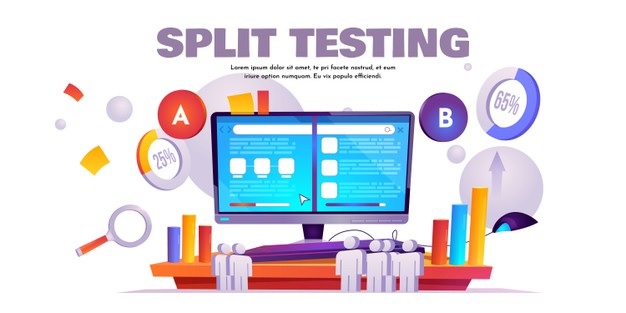“Build it, and they will come only works in the movies. Social Media is a build it, nurture it, engage them, and they may come and stay” – Seth Godin.
Table of Contents
Is this wisdom restricted only to social media? Probably not!
In the hyper-competitive digital landscape, these lines ring true for your entire digital marketing strategy, including your website. Without customer engagement, your online business is as good as non-existent.

According to Gallup, a fully-engaged customer represents 23% more revenue and growth than an average customer.
With so much on the table, it’s imperative for every brand, small or big, to break through the clutter and create a positive customer experience.
Unlike before, customers today are accessible in far easier ways. This means a brand should be easily accessible too. Unless it’s a two-way street, building a lasting customer relationship will remain an unfulfilled dream.
But, being accessible doesn’t serve the purpose alone. Streamlining interaction to create an emotional connection is equally important.

That’s where you need customer engagement tools. These tools help in shaping customer interaction based on their feeling, preference, and behavior.
5 Tools to Improve Customer Engagement on Your Website
To help you cut through the noise, we’ve listed five tools that will improve customer engagement on your website.
1. Online Surveys
It’s the clarity of your brand message that drives your business growth from a funnel to a flywheel. If your customers perceive your clothing brand as a maternity clothing brand, your brand messaging template has probably failed to deliver the right message to your customers.
From content to picture, everything you share on the website tells a story. Synchronizing these stories into one is the game-changer and key to success.
To maximize your conversion rates and revenue, you need to understand how a customer perceives your brand and what message he gets every time he hears or reads about it.
That’s why you need online customer surveys to understand what message your website and brand are delivering. Asking customers the right questions help fill brand messaging gaps and empower you to tweak changes based on their response.
Your online customer survey could become a lethal tool for improving customer engagement as you take customers’ feedback into account.
Benefits of using online surveys
- Helps in measuring customer satisfaction and engagement
- Tells customer that you value their opinion
- Give crucial data to make changes to your website
- It tells you how customers perceive your brand
One more reason to use the tool: According to 57% of marketing professionals, the best way to improve customer experience is by collecting customer feedback. There is no better way of doing it than online surveys.
2. Live engagement tools
Acquiring website visitors or customers is a daunting task. So, don’t let your customers leave without interaction.
While interaction in a brick-and-mortar store ensures a positive experience, you can implement the same interaction with your web customers using a live engagement tool.
From live video and chats to sending the customer to a one-to-one platform, a live engagement tool is an answer to all your customer engagement misery.
Live engagement is likely to become a disruptive force in digital marketing because it strikes a real-time conversation with your customers irrespective of where they are in the customer journey.
Using Whisbi’s guide to live engagement, you can wow your customer in real-time like never before. With such a tool, your customers no longer have to read blog pieces or watch videos uploaded a month ago.
Benefits of live engagement tools
- Provides real-time customer service
- Increases conversion rates
- Increases revenue
- Builds customer relationship
- Reduces email and call volume
Imagine a customer who visits your website for the first time sees a live video in real-time. Apart from creating a seamless experience, it helps them interact and ask the host questions on the spot.
Furthermore, customers who want to interact with a brand using a video have increased by 140% since January 2020. Live videos are likely to become a trend in the future.
One more reason to use the tool: As 54% of customers want companies to transform their customer engagement way, a live engagement tool could be the difference between dissatisfied and satisfied customers.
3. User recording software
Wouldn’t it be great if a camera could give you details of everything your customers are doing on the website? If you could watch or lay a hand on this information, you would hit a gold mine.
That’s where user recording software like HotJar comes to your rescue.
Using such a tool, you know where a customer is likely to disengage on your website and what actions they perform before hitting the purchase button. The tool captures clicks, scrolls, taps, and even the cursor movement.
Benefits of user recording software
- Gives insight on individual user session
- Discovers areas where a customer is bouncing or getting stuck.
- Discovers bugs and errors that enhances customer experience
- Allows you to test new features and see how your visitors interact
- Gives insight into why your customers are abandoning forms or carts
User recording software or session replay tool lets you collect evidence of website changes you’re planning. For example, if most customers turn away the minute they see the landing page, it’s probably time for you to tweak changes.
Furthermore, it lets you showcase the effectiveness of your work once all the changes are implemented.
One more reason to use the tool: Contrary to the popular privacy issues, a user recording software is both CCPA and GDPR compliant.
4. Web analytics tools
What do you expect the minute a customer lands on your website?
You want them to read your content, fill the forms and landing pages, and click-through your creatively written call-to-action. In short, you expect visitors to convert!
What if your web conversion rates are low? Your website may be witnessing 50,000 daily visits, but if the conversion rates tell a different story – you probably lack website and customer engagement.
That’s where a tool like Google Analytics helps you out.
It analyzes the website traffic, finds ways of improving, and reports the customer behavior across different web pages. Google Analytics gives detail on session duration, sources, page views, etc.
It helps in understanding where your customers are coming from and how they’re interacting with your brand. A detailed overview helps you make decisions on changes or improvements in website design.
Benefits of using web analytics tools
- Helps in understanding customer
- Increases the engagement rate
- Identifies the best page and content
- Improves your website SEO
- Helps track referrals
- Gives insight into what exactly is wrong with your website
One more reason to use the tool: The web analytics market is likely to reach $10.73 billion by 2026 as more and more online companies are realizing its potential in driving traffic, growth, and customer engagement.
5. A/B testing tools
When it comes to a website, the latest best practices and trends may not always reap the desired results. To increase your online traffic and ensure customer engagement, you need to test your way to success.
That’s where an A/B testing tool like Unbounce comes to your rescue.
Split testing or A/B testing compares two different versions of a web page, landing page, or any website element to find out which one works better.
It may not be a wise decision to run two completely different versions of your website. Such large scale A/B testing doesn’t tell you the reason why one version didn’t perform. It could be the landing page, color, CTA, or anything else.
For understanding your customers and improve customer engagement rate, test one thing at a time. A good example could be changing the CTA button from yellow to green.
Benefits of A/B testing tools
- Increases engagement and conversion rates
- Reduces bounce rates
- Results in higher conversion value
- Increases sale
One more reason to use the tool: Former president Barack Obama raised an additional $60 million using A/B testing.
Conclusion
The power of customer engagement: According to Forbes, companies that focus on customer experience outperform competitors by a whopping 80%.
If you’re still double-minded on whether to implement one of these five customer engagement tools, the above statistics should get you going.
Building a solid base of engaged customers is easier said than done. Though it may seem overwhelming at starting, you can improve customer engagement with the right set of tools.
With customer engagement revolving around emotional connection and communication, NOW is the right time to give it due importance. Businesses need to focus on improve customer engagement not only for generating revenue but also for creating value.
The bottom line is trying to understand your customer and their requirements instead of only focusing on what they buy.
The mathematics here is simple, More customer engagement = More revenue and more business growth.
The path that leads to your customer’s heart and wallet is the one where you offer a consistently engaging experience at every step for every customer.
How are you engaging your website visitors, and what tools do you use to increase your website’s engagement rate?
Do tell us!




